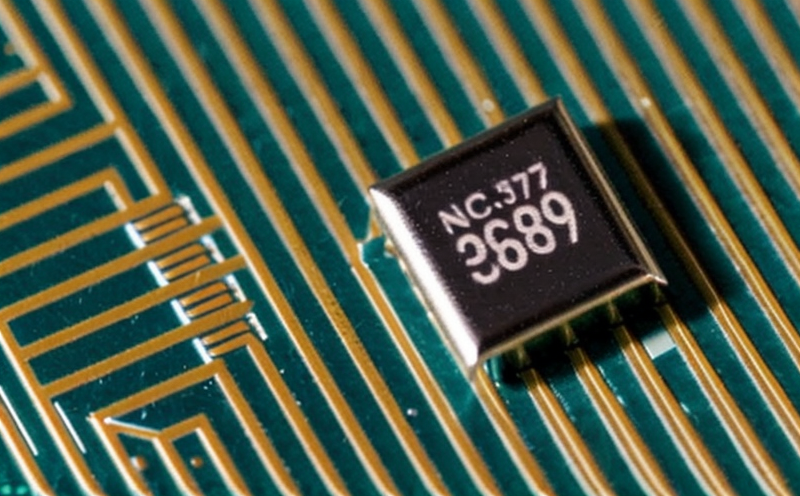ASTM F771 Coating Adhesion Reliability Testing
The ASTM F771 standard is a critical tool in the semiconductor and microchip testing sector, providing stringent guidelines for assessing coating adhesion reliability. This test is essential for ensuring that coatings on microchips and other electronic components are durable against mechanical stresses, chemical exposure, and environmental factors such as temperature cycling.
Coating adhesion plays a pivotal role in the overall performance and longevity of semiconductor devices. A robust coating can prevent contamination, ensure electrical integrity, and enhance thermal management within the microchip. The ASTM F771 test method is specifically designed to evaluate the durability of these coatings under realistic conditions that mimic real-world use.
The standard specifies a series of tests intended to simulate various environmental stresses, including mechanical abrasion, immersion in solvents, and exposure to extreme temperatures. These tests are crucial for verifying not only the initial adhesion but also the long-term reliability of the coatings used in semiconductor manufacturing.
For quality managers and R&D engineers, understanding these testing protocols is vital as it ensures that the coatings meet stringent industry standards and customer expectations. The test results provide valuable insights into potential weaknesses in the coating design or application process, allowing for continuous improvement and innovation.
Why It Matters
The reliability of semiconductor devices is paramount to their performance and longevity. Coating adhesion plays a significant role in ensuring that the protective layers around microchips remain intact under various stress conditions. A compromised coating can lead to short circuits, corrosion, or physical damage, which could render the device non-functional.
ASTM F771 testing helps identify potential issues early in the development and manufacturing processes. By adhering to this standard, manufacturers can ensure that their products meet not only current regulatory requirements but also anticipate future challenges they may face in real-world applications.
The test results provide a clear roadmap for improving product quality and durability. This information is invaluable for compliance officers who need to ensure that all materials used in the manufacturing process are up-to-date with international standards like ISO 9001, ASTM F771, and others relevant to semiconductor testing.
Moreover, the insights gained from these tests contribute to sustainable practices by reducing waste and improving efficiency. By identifying coatings that perform well under stress conditions, manufacturers can minimize material usage and optimize production processes, ultimately contributing to a more environmentally responsible industry.
Why Choose This Test
- Accurate assessment of coating durability in harsh environments.
- Precise quantification of adhesion strength using standardized methods.
- Compliance with international standards such as ASTM F771 and ISO 9001.
- Insight into potential failures through simulated real-world conditions.
The ASTM F771 test is particularly beneficial for quality managers, compliance officers, R&D engineers, and procurement teams. It offers a comprehensive approach to evaluating coating adhesion reliability, ensuring that the materials used in semiconductor manufacturing are robust and reliable. By choosing this test, stakeholders can gain confidence in their product's performance and longevity.
Environmental and Sustainability Contributions
The ASTM F771 coating adhesion reliability testing contributes significantly to environmental sustainability by promoting the use of durable materials that reduce waste. By identifying coatings that can withstand harsh environments, manufacturers can minimize the need for frequent replacements or repairs, thus reducing overall resource consumption.
This test also plays a role in ensuring compliance with international standards and regulations aimed at reducing the environmental impact of manufacturing processes. By adhering to ASTM F771, companies demonstrate their commitment to sustainable practices, which is increasingly important in today's market.
The insights gained from these tests can lead to innovations that enhance both product performance and sustainability. For instance, by improving coating adhesion, manufacturers can reduce the amount of material used while still maintaining high levels of reliability, thereby contributing positively to environmental conservation efforts.





